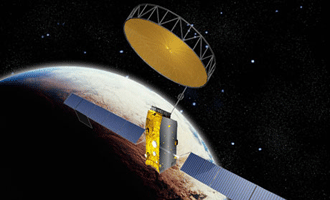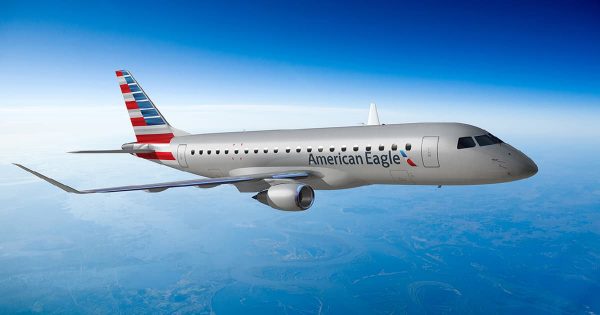Inmarsat announced its decision to deploy an integrated telecommunications network to deliver aviation passenger connectivity services, including inflight broadband, on a EU-wide basis.

To achieve this ambition, Inmarsat confirmed its order for a new S-band satellite, to be called Europasat, and expects to complement this satellite with a fully integrated air-to-ground network across the EU.
Inmarsat’s new aviation network will deliver high speed broadband services to commercial and business aviation passengers. These capabilities will be offered alongside Inmarsat’s Global Xpress aviation services, extending Inmarsat’s service coverage for aviation passengers seamlessly across the rest of the globe, and placing Inmarsat in a leadership position in the global in-flight passenger connectivity market. A market that is already both substantial and rapidly growing in North America and which offers exceptional growth potential globally.
Rupert Pearce, Inmarsat’s CEO commented, “North America has seen rapid take-up of in-flight passenger connectivity services, with installation and usage both growing very quickly. The success of the Gogo air-to-ground network has already triggered the building of a second competing network by AT&T, one of the world’s largest telecommunications operators. Independent research predicts that in-flight connectivity services will be a multi-billion dollar revenue sector by 2020.
“We believe that the same in-flight connectivity opportunity exists in Europe and that, with the support of EU telecoms regulators, Inmarsat can rapidly bring to market unique, high speed aviation passenger connectivity services to meet this market demand on an EU-wide basis. A number of European airlines are aligned with this vision and we are absolutely delighted to announce advanced discussions with British Airways to be a launch customer on our new aviation network.”
Kate Thornton, Head of Product and Service at British Airways commented, “British Airways is in discussions with Inmarsat about leading Europe in a new era of broadband in the air. Starting with UK domestic routes Inmarsat intends to deploy Europe’s first ground-based 4G broadband network giving our customers the internet access they expect on the ground while in the air”.
To reduce initial programme costs, Inmarsat and Hellas-Sat, a non-competing European satellite operator, have contracted with Thales Alenia Space for the construction of a satellite on a shared basis such that each partner will retain exclusive rights to a separate payload. Inmarsat’s S-band payload will be called Europasat and the satellite is expected to be delivered for launch at the end of 2016. As a result of the shared payload agreement, Inmarsat’s costs for the manufacture, launch, insurance and operations of Europasat are expected to be approximately $200m or half of what it would have cost to deploy an S-band satellite on a stand-alone basis. The majority of the expected cost will be incurred over a 3-year period.
The aviation network deployment will be enabled by Inmarsat’s existing authorisation to operate integrated satellite/terrestrial communications services in 30MHz of S-band frequencies across the 28 Member States of the EU. Inmarsat has already commenced the licencing process with EU Member States in order to allow timely deployment of the new aviation services. Inmarsat has received strong support for its applications from many EU telecoms regulators and remains confident that, on the back of its substantial financial commitment announced today, a consistent EU regulatory foundation can quickly be completed to support the deployment of these services for the benefit of EU businesses and consumers.
Further investment in the development and construction of the complementary ground component network across the EU, fully integrated with the Europasat satellite, will follow the progression of national level licence approvals and the signing of substantive customer commitments. The total cost to Inmarsat of the further ground network development programme and service deployment is estimated at $200m to $250m and would be incurred over the next six years. In addition to aviation services, Inmarsat expects Europasat to support next generation emergency network services for public protection and disaster relief.






